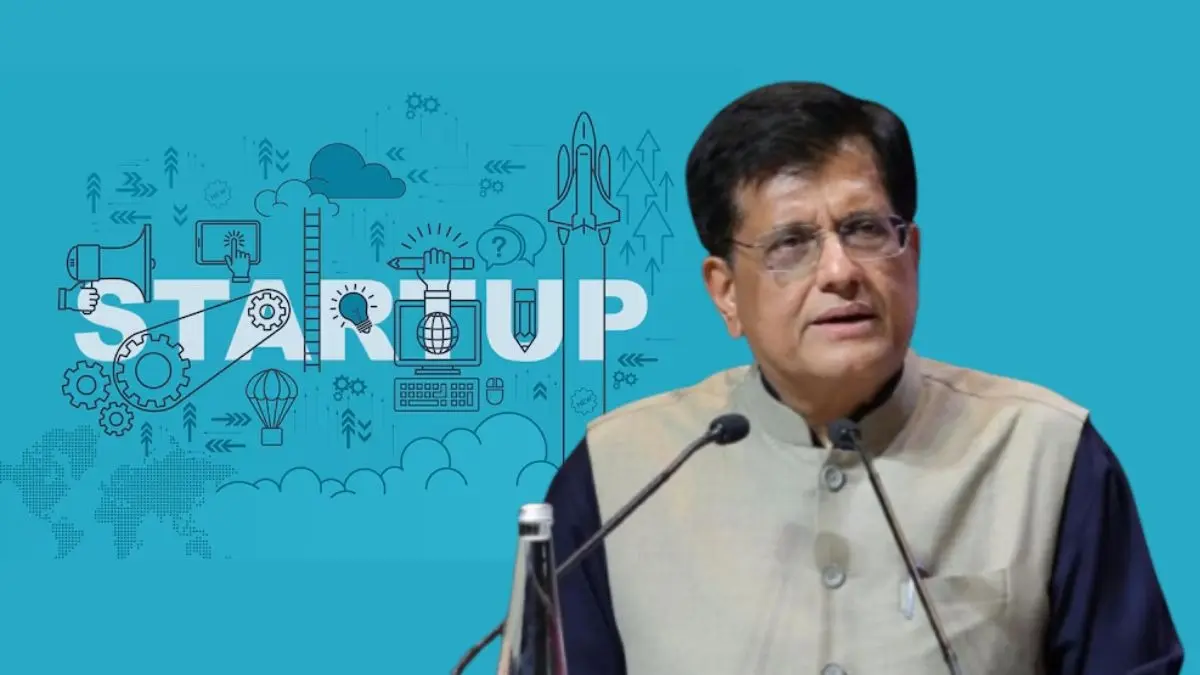Updated 4 April 2025 at 16:13 IST
Touchiness Not What Indian Startups Need: Why Piyush Goyal’s Spotlight On Where India Needs To Go Is 100% On-Point
Union Commerce Minister Piyush Goyal urges shift from quick commerce to deep tech for global leadership.
- Republic Business
- 4 min read

Speaking at the Startup Maha Kumbh, Union Commerce Minister Piyush Goyal did not hold back in his critique of India’s startup landscape. He questioned whether India was settling for a future of gig economy jobs and consumer-driven startups instead of focusing on technological self-sufficiency.
“Dukaandari ka hi kaam karna hai ya one of scale, to make a mark in the world?” Goyal asked, pointing out that while India’s startup ecosystem is booming, much of the attention is on food delivery,and quick commerce.
Emphasis on Deep Tech and Innovation
Highlighting the disparity in focus, Goyal pointed out examples of billionaires' children running successful businesses in consumer goods like fancy ice creams and cookies. While acknowledging their success, he emphasized the need for India to aim higher—investing in sectors like semiconductor manufacturing, AI, and automation.
Goyal stressed the importance of preparing for future industries that can compete globally and capture new markets.
Read More
Ashneer Grover Comes In Support Of Startup Ecosystem Amid Piyush Goyal's Start Up Remarks
He said, “ Fancy ice cream and cookies. In fact, I know at least three or four billionaires whose children make on one brand or the other very fancy ice creams and cookies and run a very successful business, and I have no complaint against that. But is that the destiny of India? Healthy ice cream.
Advertisement
Quick Commerce vs Deep Tech: Here’s Why Piyush Goyal Is Right
The rapid rise of quick commerce in India is a prime example of the startup ecosystem’s current trajectory. Quick commerce—instant grocery and essentials delivery—has disrupted traditional retail with its promise of 10- to 20-minute deliveries. The sector saw a 70% surge in gross merchandise value (GMV) in 2023, reaching $2.3 billion, with projections indicating it could hit $5.5 billion by 2025, according to a RedSeer report. Platforms like Blinkit, Swiggy Instamart, Dunzo, and Zepto have revolutionized last-mile delivery by building micro-warehouses near consumer hubs, as per data by IBEF.
However, Goyal urged startups to look beyond instant gratification. While India perfects quick commerce, China and other global players are investing heavily in robotics, automation, and AI-driven manufacturing. Goyal emphasized, “The other side is doing robotics, automation, machine learning, preparing themselves for 3D manufacturing, next-gen factories that compete with the rest of the world and capture markets.”
India’s Startup Ecosystem: Growth with Limited Depth?
Despite these concerns, India’s startup ecosystem is undeniably strong. The country ranks third globally, boasting over 100 unicorns and offering immense investment opportunities, as per a report by KPMG. Key growth factors include:
A robust network of incubators and accelerators.
A thriving venture capital scene, with e-commerce, enterprise tech, and fintech leading in funding deals.
A diverse consumer market with an expanding middle class.
A highly skilled tech workforce, benefiting from increased smartphone and internet penetration.
Advertisement
However, while quick commerce’s contribution to online grocery sales is set to rise from 10% to ~45% in the coming years, deep tech startups remain significantly underrepresented.
Funding Trends: Where Is the Money Flowing?
The current funding distribution reveals where India’s startup focus lies:
E-commerce – 192 funding deals in 2023.
Enterprise tech – 157 deals.
Fintech – 129 deals.
Deep tech –61
Cleantech –57
This funding pattern underscores Goyal’s concerns—despite its startup success, India still lags behind in AI, automation, and semiconductor development, areas that are shaping the future of global economies.
The Need for a Shift: What’s at Stake?
Goyal’s argument is clear—while there is nothing wrong with thriving quick commerce, fintech, or consumer service startups, India must also invest in semiconductor manufacturing, AI, and next-generation automation. The Indian EV market alone is projected to be worth $113 billion by 2029, requiring 1.3 million charging stations. Startups need to seize these opportunities rather than focus solely on fast deliveries and consumer convenience, as per a report by KPMG.
Building for the Future, Not Just the Present
Goyal’s message was firm—Indian startups must think beyond quick fixes and explore deep tech, AI, and manufacturing innovation.
Published By : Gunjan Rajput
Published On: 4 April 2025 at 16:13 IST
